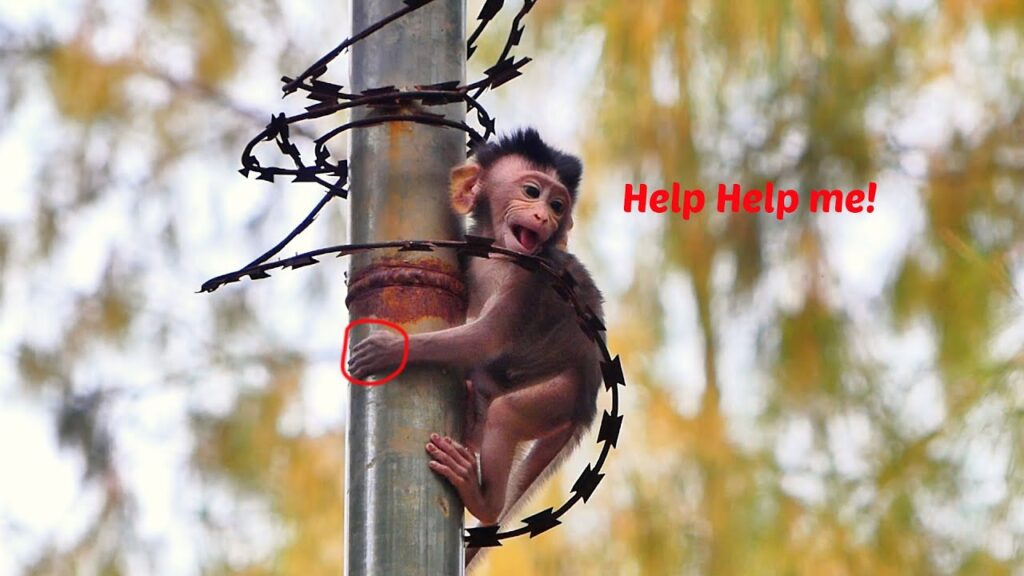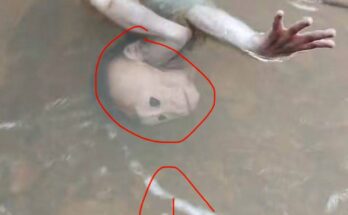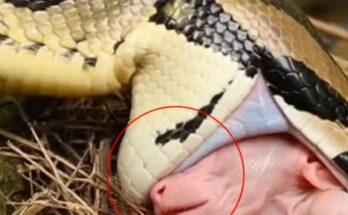
Berila didn’t understand the danger. She saw something shiny—perhaps a fruit or a piece of plastic glinting in the sunlight—just beyond the fence. Without hesitation, she reached out her little hand, then tried to squeeze through the narrow gap between the wires. But in seconds, everything went wrong.
Her soft fur snagged, and the sharp barbs pierced her tiny arm. She screamed in pain, a sound that tore through the forest like an alarm. She tried to pull back, but the more she moved, the deeper the barbs dug into her skin. Tears filled her wide eyes as she cried louder and louder, calling for her mother, calling for anyone to help.
The other monkeys heard her cries and rushed to the scene. Her mother arrived first, panic flashing in her eyes. She reached out to free her baby, but the sharp metal scared her too. Berila’s cries grew weaker as she hung there helplessly, struggling to breathe through her pain.
Then, an older male monkey—strong and calm—approached carefully. He had seen humans handle these traps before. Slowly, he began to pull and bend the wire just enough to loosen its grip. After several tense minutes, Berila’s arm finally slipped free. The baby fell into her mother’s arms, trembling but alive.
Her mother held her close, licking her wounds gently, comforting her with soft sounds only monkeys understand. The rest of the troop surrounded them, watching silently. The once playful forest was now filled with quiet relief and sadness.
As the sun dipped low, Berila lay safe beside her mother, still whimpering softly. The barbed wire stood nearby, a cold reminder of how dangerous the boundary between nature and humans can be.
That day, little Berila learned a painful lesson, and her family learned to keep the young ones away from the fence. But her cries would not be forgotten—they were a call not just for help, but a plea for understanding between the wild and the world beyond the wire.


